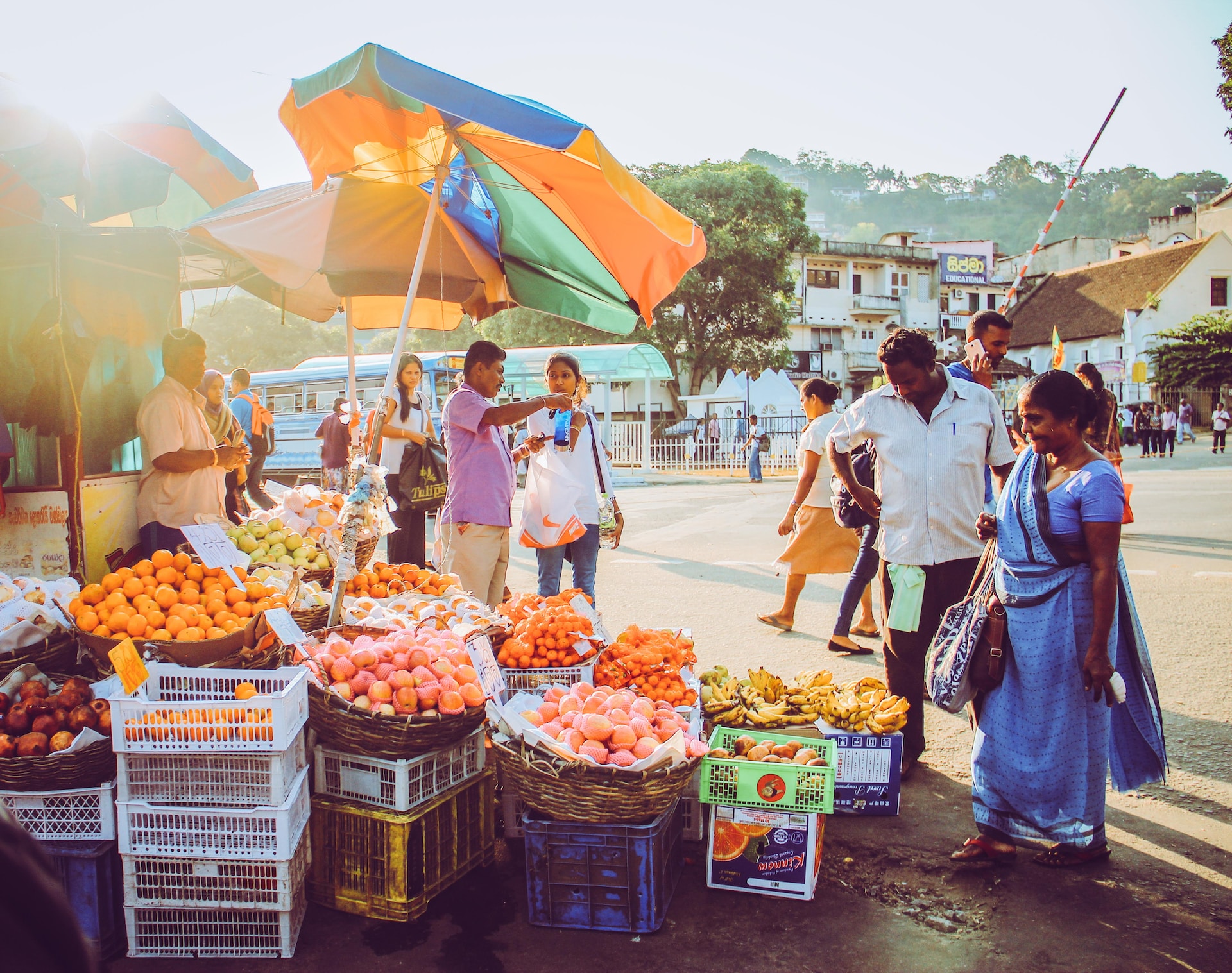Sri Lanka, often referred to as the ‘Pearl of the Indian Ocean’, is a beautiful island nation that offers its visitors a diverse array of cultural experiences, stunning landscapes, and rich biodiversity.
Earlier this year, Forbes voted the country as one of the best to travel to in the world, citing the hustle and bustle of capital city Colombo, the country’s beautiful beaches and bountiful rice fields, waterfalls and mountains, and the splendour of the ancient cities of Anuradhapura and Kandy as just some of the reasons to make the long haul flight here.
As such a coveted place to visit, Sri Lanka is also a country that heavily depends on tourism for its economic growth. That said, in the last few years, Sri Lanka has suffered several blows to its tourism industry; there were the Easter terror attacks that rocked the country back in 2019, and, more recently, the country has battled both COVID-19 and an economic crisis.
Luckily, it looks like tourism is once again on the rise; last year Sri Lanka received over 700,000 tourists compared to under 195,000 in 2021. Rejoice! That said, such an influx back to the country can leave its mark, and as tourism continues to grow, sustainable travel becomes ever more crucial to the Sri Lanka, helping the country can preserve its rich biodiversity and cultural heritage.
Sri Lanka is taking steps to ensure sustainable travel is possible in the country. In 2021 they became members of the Global Sustainable Tourism Council (GSTC) to strengthen the islands position as a sustainable destination. At the time of joining the Sri Lankan Tourism Chairperson said that “Sri Lanka is a small island vulnerable to climate change with its tourism product heavily dependent on natural resources, hence it is essential to develop the industry in a sustainable manner.”
With this in mind, here are some top tips for a sustainable holiday to Sri Lanka.
All Aboard The Sustainability Train
If you speak to anyone who has set foot on Sri Lankan soil, no doubt they will tell you about the unforgettable train journey they took into the beautiful hills of Sri Lanka. Indeed, taking the train in Sri Lanka is a rewarding experience, chugging past women picking tea, kids waving at the train, and an ever changing lush and verdant landscape.
The journey from Colombo to Kandy, in particular, is a stunner, and is renowned worldwide for its scenic beauty. The route is so enchantingly beautiful, in fact, that it’s become a bucket list for many visitors and always features in lists of the top train journeys in the world. What’s more, it’s also one of the most effective ways to reduce your carbon footprint while travelling here.
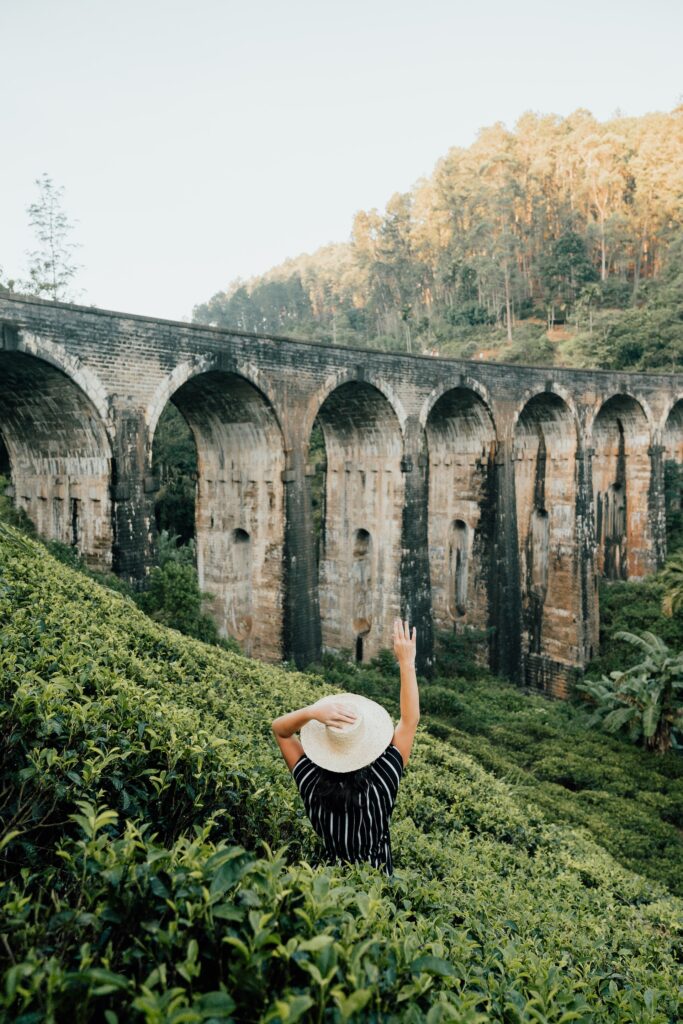
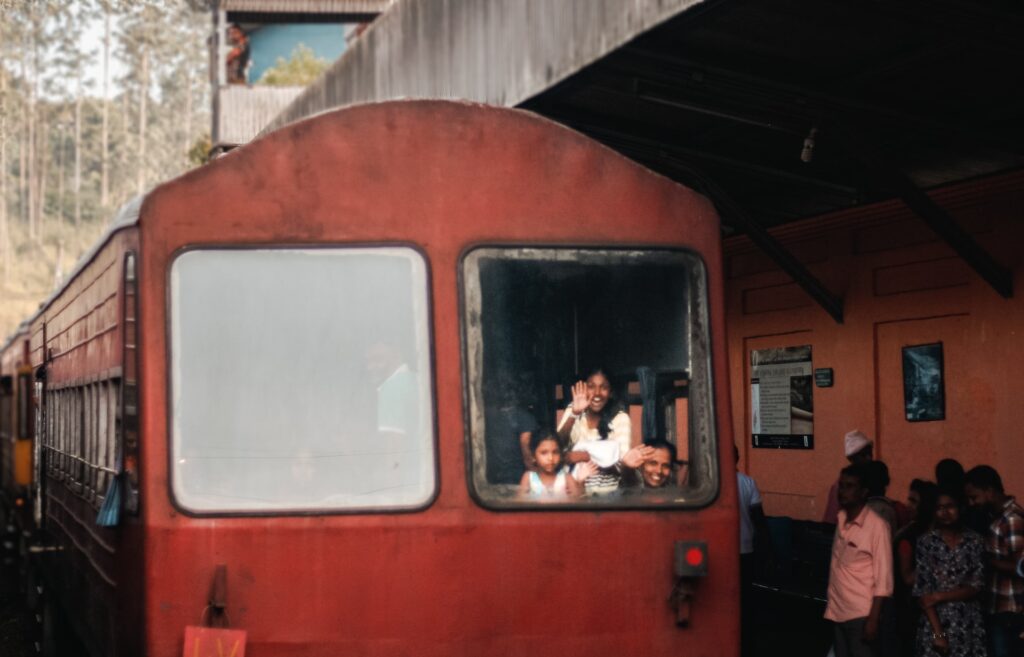
Sri Lanka, an island nation, is endowed with remarkable biodiversity, including lush rainforests, varied wildlife, and idyllic beaches. Undeniably, these are delicate ecosystems that can be disturbed by tourists renting private cars. Enter its extensive network of public trains that connect various cities and towns. Not only are these modes of transport cost-effective, but they also provide an opportunity to experience the local culture and breathtaking views of the countryside up close and personal.
Read: 7 must visits when on layover in Sri Lanka
Safaris Over Elephant Riding
While riding elephants may seem like an exciting activity, it often involves cruel treatment of these magnificent creatures. Instead, opt for wildlife safaris that respect animal rights and promote conservation. According to the travel experts at Selective Asia, Leopard Trails is one of the best safari operators in Sri Lanka and operate camps both Wilpattu and Yala.
They tell us that “Leopard Trails has a strong commitment to responsible tourism. As part of their strategy to benefit local people, they do not have their own vehicles but rather employ local drivers and their jeeps as a package.”
Continuing, they say that the safari company’s compassion towards Sri Lankan wildlife and its future is clear. By choosing a company involved in environmental conservation efforts, you are indirectly contributing to the preservation of natural attractions which are crucial for sustainable travel.
Selective Asia also offers an insider tip; that Uda Walawe is an often overlooked National Park and has the most impressive herd of elephants. At the park, “all efforts are made to minimize human contact with the elephants, but you can watch them being fed and bathed, and head out for a dusk drive through the park to spot a herd on the move”. At this time it’s not unusual to see whole herds feeding, bathing or just playing in the water”.
And that’s music to our (relatively small) ears.
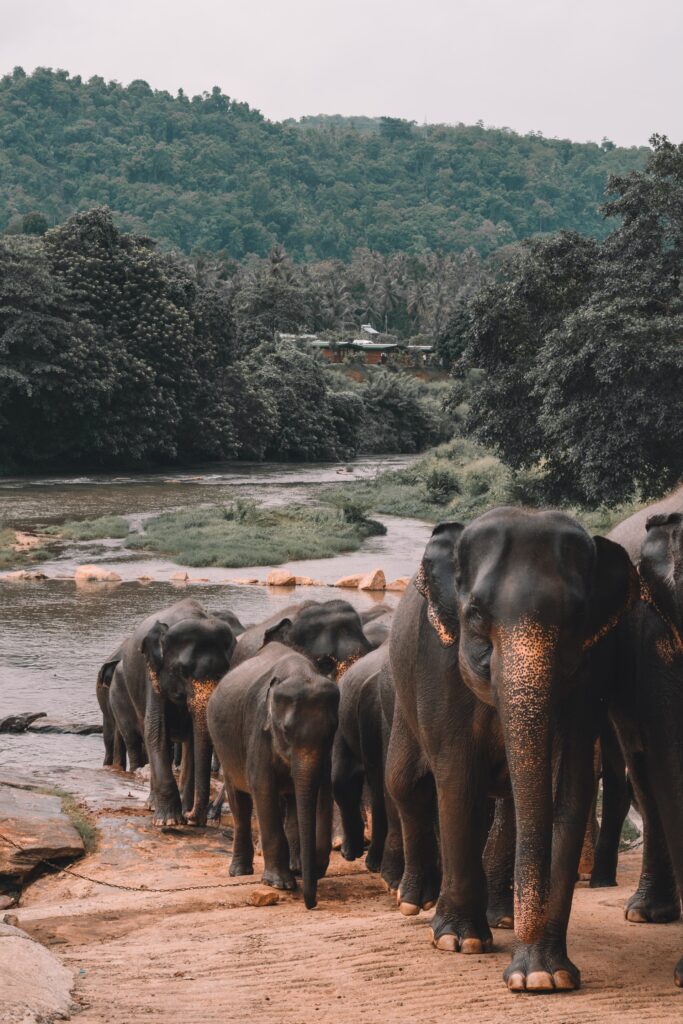
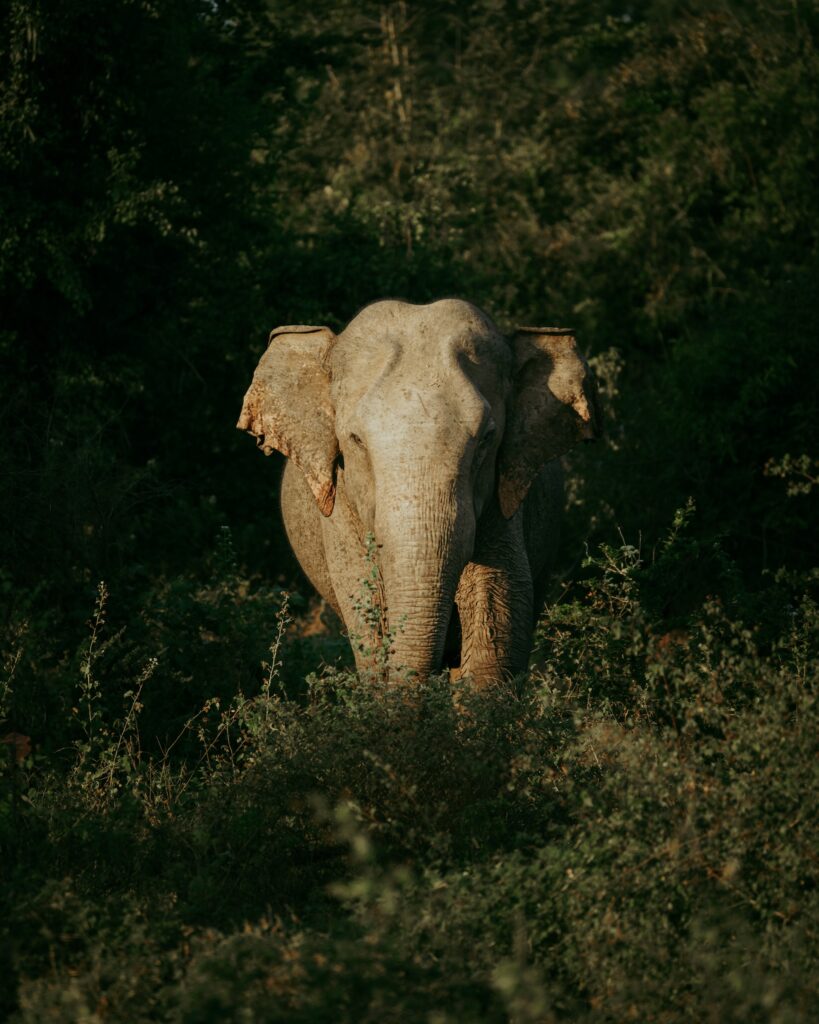
Supporting Non-Profit Organisations
If you want to travel sustainably in Sri Lanka, then consider supporting non-profit organisations like SeaSisters and the Sambol Foundation, both of whom are doing commendable work in Sri Lanka in areas of marine conservation and community, respectively, working towards the upliftment of local communities.
Supporting such organisations can foster community-based tourism, a form of travel that benefits local populations economically and socially. Help non-profits like these by participating in their programs, volunteer, or make donations, in turn making a positive impact on the local community and environment.
Eco Lodges & Homestays
Making every effort to prioritise sustainable accommodation is another significant aspect of responsible tourism. Many eco lodges and hotels in Sri Lanka are committed to minimising their environmental impact by using renewable energy sources, recycling waste, and implementing water-saving measures. These establishments often offer unique experiences, such as treehouse living or beachfront cottages, enhancing your connection with nature. Some of the most popular eco-friendly stays include:
Jetwing Vil Uyana, Sigiriya: Set among reed beds and paddy fields, Jetwing Vil Uyana features thatched-roof dwellings with luxurious amenities. The hotel has a strong commitment to sustainability and conservation, with initiatives such as wastewater treatment systems, solar power, and strict waste management.
Heritance Kandalama, Dambulla: Designed by renowned Sri Lankan architect Geoffrey Bawa, the hotel blends seamlessly into its surroundings. It has been awarded for its sustainability efforts including rainwater harvesting, recycling, and employing local staff.
Tri Lanka, Koggala: An eco-friendly luxury hotel that combines sustainable practices with contemporary design. It’s known for its green roofs, solar-powered energy, and locally sourced materials and food.
Rainforest Ecolodge, Deniyaya: Nestled on the edge of the Sinharaja Forest Reserve, a UNESCO World Heritage Site, the Rainforest Ecolodge offers guests an immersive experience in biodiversity conservation, all while ensuring the comfort of a luxury stay.
Gal Oya Lodge, Ampara: Located in the heart of Gal Oya National Park, the lodge offers a unique opportunity to experience Sri Lanka’s wildlife while staying in environmentally friendly bungalows constructed from locally sourced materials. It also practices sustainable methods like recycling and composting, and employs and trains local community members.
Sustainable tourism is also about propelling economic development and helping to create jobs for locals linked to the travel sector and indirectly in allied sectors such as local craft industries, fishing and agriculture. By using a homestay, you’ll get closer to the ‘real Sri Lanka’, and gain an authentic experience of Sri Lankan life.
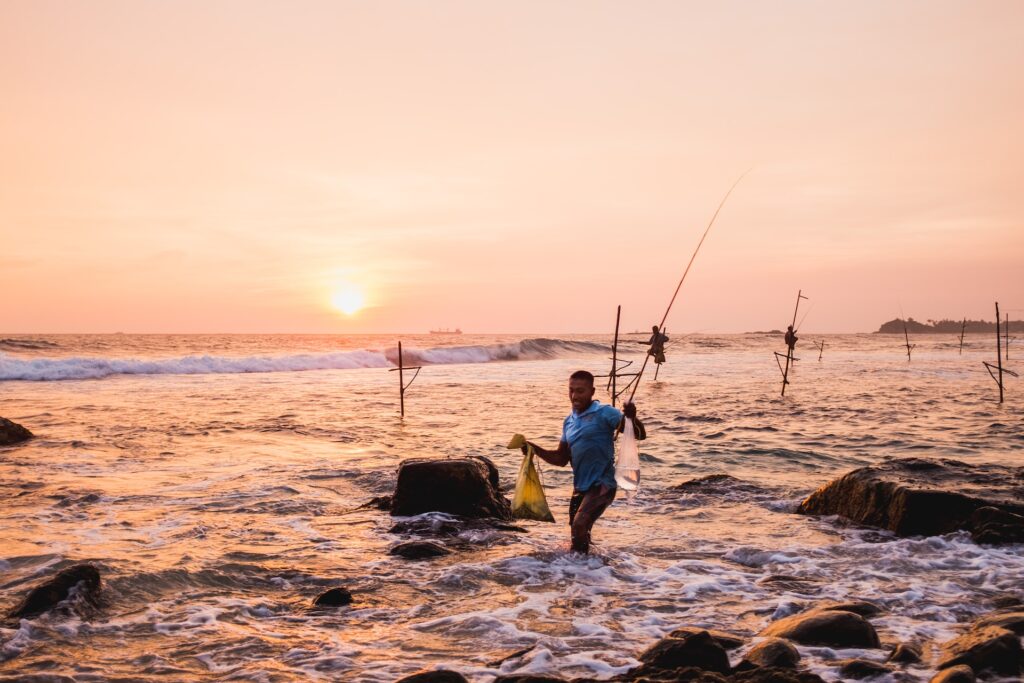
What’s more, you contribute directly to their income, support the local economy, and get an opportunity to learn about their customs and traditions firsthand. Whilst the online platform homestay.com offers access to this kind of accommodation, both booking.com and AirBnb can help facilitate a similar arrangement via their ‘private’ and ‘shared’ room options.
Homestays in Sri Lanka are plentiful and affordable. Sri Lankans are ridiculously warm, hospitable people meaning it’s a brilliant way to experience the life of a local, particularly in terms of food. Sri Lankans love to eat at home, and the street food and restaurant culture isn’t quite the same beast as other Asian tourist hotspots. Finding a cheap restaurant doing really good, authentic fare isn’t always easy, so a homestay is perhaps the best way you’ll eat really well and engage meaningfully with locals. Speaking of which…
Eat Locally & Take Cooking Lessons From Locals
Taking cooking lessons from locals is not only a fun way to learn about Sri Lankan cuisine, but is also a means to support the local economy. These interactive sessions provide insight into traditional cooking methods, local ingredients, and the culture surrounding food. Plus, you get to enjoy a delicious meal at the end! Moreover, returning with a few new dishes in your repertoire, learnt from those who understand Sri Lankan food implicitly? Sounds like just the ticket to us and the recipe for a dream foodie trip to us!
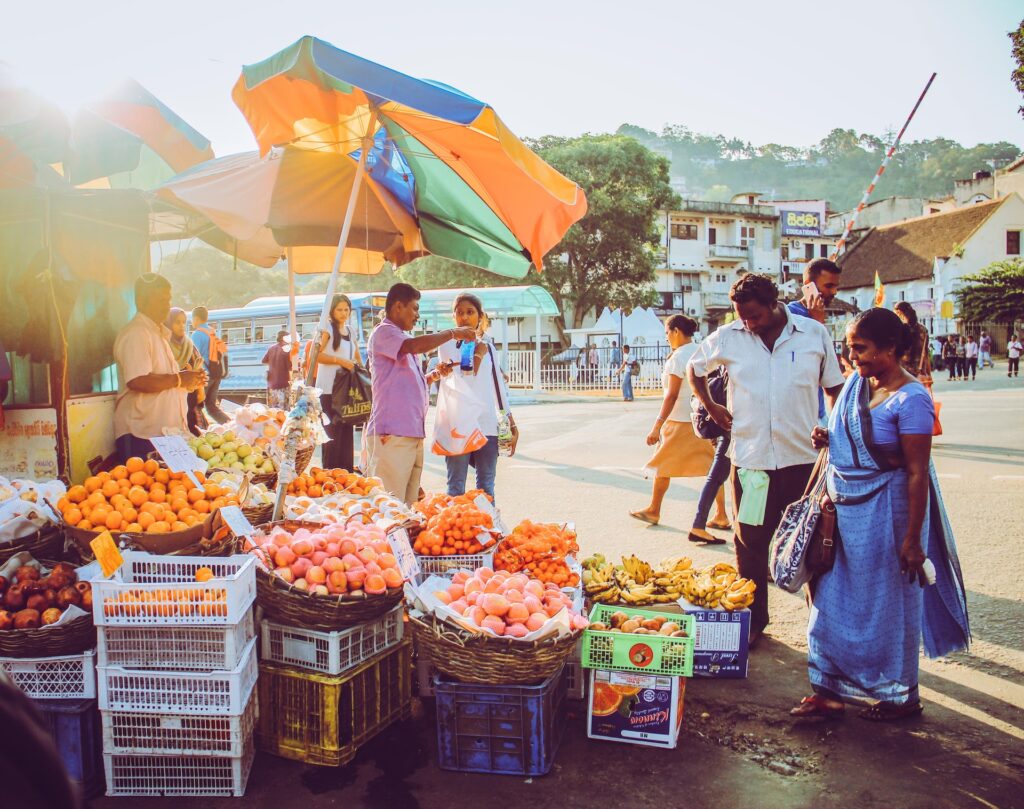
Now, get to know more about Sri Lankan cuisine with our roundup of 12 must try dishes in Sri Lanka.
The Bottom Line
Sustainable tourism in Sri Lanka and anywhere else in the world is about making conscious choices – from the mode of transport and accommodation to activities and experiences. By choosing to travel sustainably, we can help preserve the natural and cultural treasures of this beautiful island nation for generations to come.

